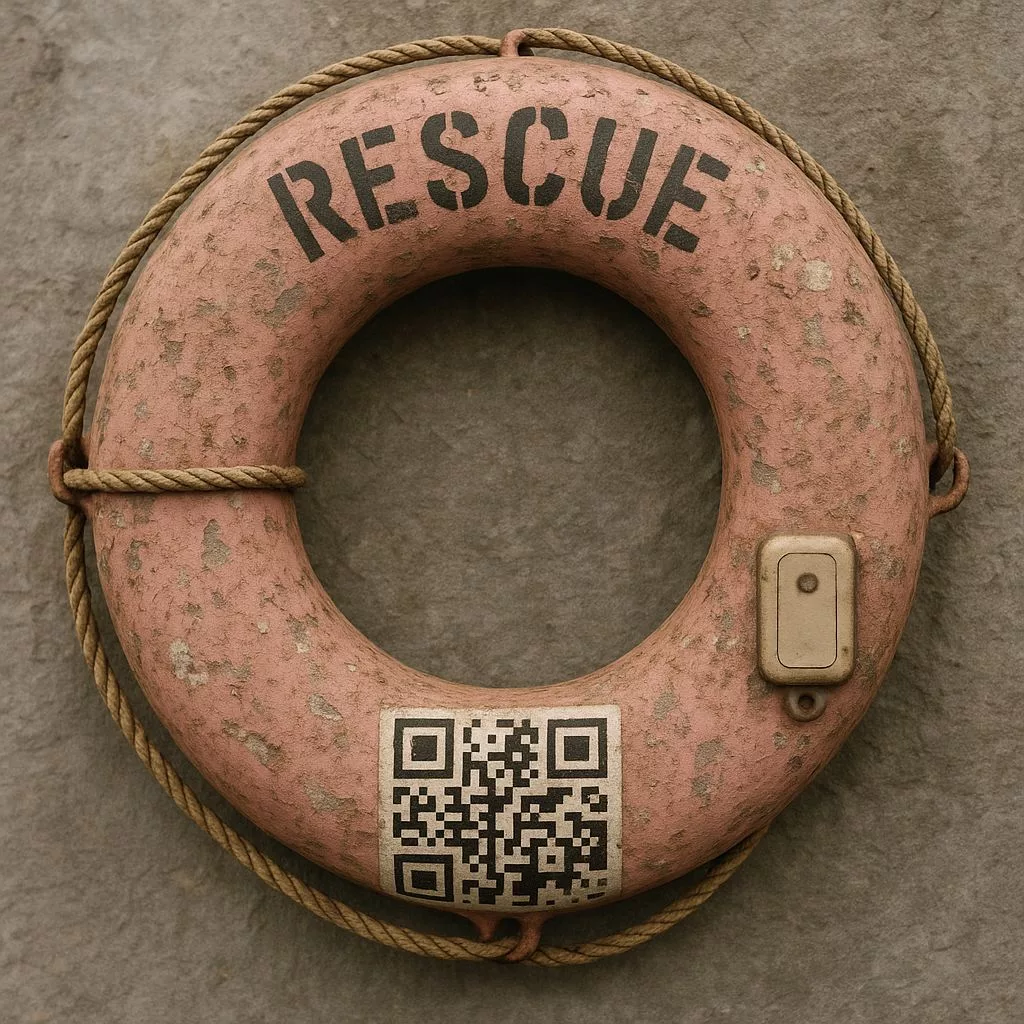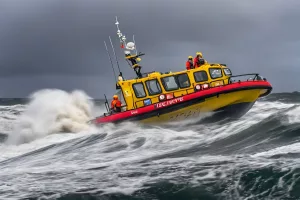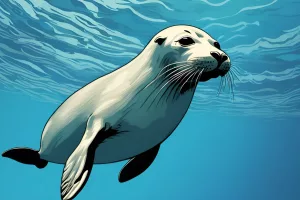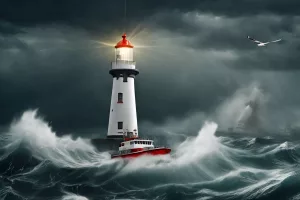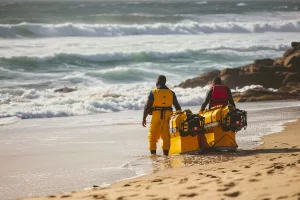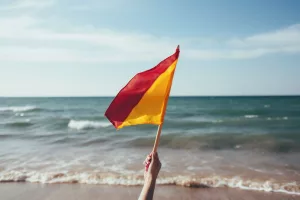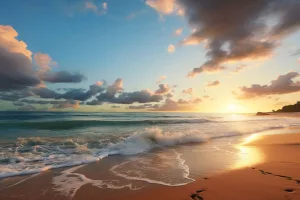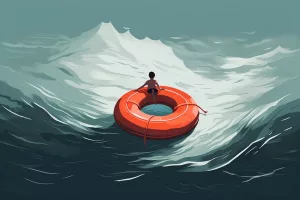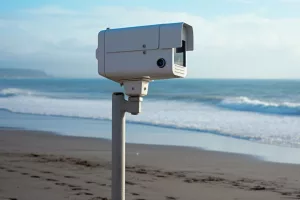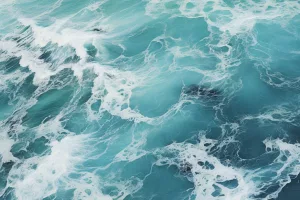South Africa’s rescue services are using amazing new technology this holiday season to keep everyone safe! They have smart maps that show every tiny detail, even beach towels. Drones fly above, watching for trouble and using social media pictures to find landmarks. They even have special buoys that teach you CPR with a QR code! This means faster help and fewer accidents, so everyone can enjoy the sun.
On a fishing trip off the coast of Hermanus, a father and three teenagers faced a terrifying ordeal when their boat capsized in icy waters. For over seven hours, they clung to the boat, battling cold and fear, until local anglers spotted them and alerted the National Sea Rescue Institute (NSRI). The rescuers swiftly arrived, pulling the tired group from the sea and providing urgent care. Thanks to their bravery and quick thinking, all four were rescued and are now on the road to recovery, a shining example of hope and courage in the face of danger.
Starlink is changing how sea rescues happen in South Africa by providing fast and reliable internet through satellites. This technology helps the National Sea Rescue Institute (NSRI) save lives by improving communication during rescue missions, especially in remote areas where it’s hard to connect. It’s not just about rescues; Starlink also promises to boost local economies by improving access to education and other important services. With this new connection, South Africa is on its way to a brighter, safer future for everyone.
The NSRI heroically rescued two surf skiers stranded in dangerous seas, battling severe weather conditions to retrieve the hypothermic men and their surfski. With the help of NSRI’s expertise and innovation, the vigilant team successfully secured the surfski against relentless winds and turbulent waters. The daring rescue serves as a testament to the importance of preparedness and the bravery and teamwork of the NSRI.
The National Sea Rescue Institute (NSRI) is a nonprofit organization that specializes in water rescue operations across South Africa. Recently, the NSRI successfully saved 22 fishermen from a sinking fishing trawler off the coast of Cape Town. Despite the valiant efforts of all parties involved, the trawler sank, but the fishermen were rescued and declared to be in good health. This incident serves as a tribute to the resilience and resolve of the NSRI and the dangers of the sea.
At Oudekraal Beach in Cape Town, a fun day of scuba diving turned into a horrifying experience when an aggressive seal attacked several divers. Thanks to the quick response of the National Sea Rescue Institute and emergency services, all the divers were rescued, but some suffered from puncture wounds and required medical attention. This incident, along with previous cases of aggressive seal behavior, calls for increased awareness and caution when engaging with marine animals.
This past weekend was filled with highstakes emergencies along the Cape South Coast, prompting the intervention of the National Sea Rescue Institute (NSRI) and other emergency services. Despite some tragic fatalities, the NSRI and other emergency services’ bravery and dedication were exemplified throughout the weekend. Their actions serve as a reminder of the sea’s dangers and the importance of approaching it with caution and respect.
A joyous Christmas Day at Kleinbrak Beach turned tragic when a man drowned despite heroic rescue efforts by his friend and the National Sea Rescue Institute (NSRI). The incident serves as a reminder of the dangers lurking beneath the surf, and the importance of respecting the power of nature. Emergency services, including the Western Cape Government Health Emergency Medical Services, Mossel Bay Fire and Rescue services, ER24 ambulance services, and the South African Police Services, were summoned to the scene, but were unable to revive the man.
The National Sea Rescue Institute (NSRI) has issued a warning about the upcoming spring tide peak, which will increase the strength of rip currents. Rip currents are dangerous and can drag even strong swimmers into deep waters. The NSRI advises people to exercise caution near the shoreline, swim only in areas guarded by lifeguards, and to float on their back and swim parallel to the beach if caught in a rip current. It is important to prioritize safety when enjoying the stunning coastline of Cape Town.
The story of St Lucia’s Unyielding Vigor is one of tragedy and heroism. A local teenager was lost to the sea, but a 14yearold boy was saved by a brave hero. Rescue teams and police divers worked tirelessly to find the missing teenager, while a separate incident saw a man lost to the waves in Struisbaai North. Amidst the grief, the St Lucia community showed their resilience and solidarity, reminding us that the strength of humanity can triumph over even life’s most tumultuous currents.
The National Sea Rescue Institute (NSRI) is leading the charge in ensuring summer fun is also safe. Their Survival Swimming Program teaches essential water safety skills to people of all ages, free of charge. Certified instructors provide personalized, concentrated learning in small groups of three to five participants, covering skills such as floating, breath control, and freeing oneself from potential water hazards. With an ambitious goal of providing 25,000 Survival Swimming lessons and 750,000 Water Safety classes this season, the NSRI is committed to reducing South Africa’s high drowning rates.
The NSRI’s Beach Safety Camera Network Project is a groundbreaking initiative aimed at improving safety on South Africa’s beaches. By placing cameras in highrisk rip current areas, vigilant operators can alert nearby lifeguards of potential hazards, potentially saving lives. The NSRI is actively seeking volunteers to oversee the camera system, providing comprehensive training to ensure they are wellprepared to operate the cameras and receive support as needed. As the network of cameras continues to expand, beachgoers can enjoy South Africa’s stunning coastal vistas with greater peace of mind.
A sailor’s distress call sparks a united response from the maritime community, as vessels and rescue services quickly coordinate to search for him and his missing brother off the coast of Port St Johns. Despite their efforts, the brother is lost to the sea, but the rescue serves as a testament to the resilience of the human spirit and the power of collaboration in the face of nature’s unpredictable forces. The story inspires hope and reminds us of the significance of solidarity, empathy, and preparedness when confronting life’s turbulent waves.

